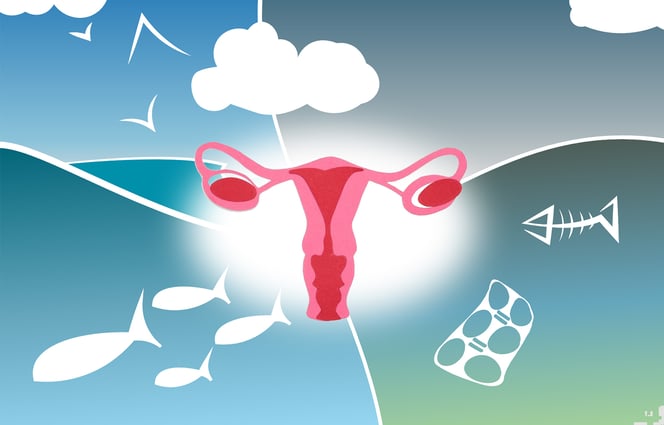Creating a Conception-Friendly Environment: Understanding the Impact of Environmental Factors on Fertility
4/17/20243 min read


Many elements are involved in the process of starting a family, and for many couples, one of the biggest concerns is fertility. Although lifestyle decisions and genetic predispositions are important factors, our surroundings are a factor that is frequently disregarded. Environmental elements can have a significant impact on both men's and women's fertility rates, including exposure to poisons and pollution. Comprehending these factors and proactively mitigating hazards can greatly augment the likelihood of fertilization. We'll explore the complex connection between environmental elements and fertility in this blog post, along with some helpful advice on designing a home that promotes conception.
The Impact of Environmental Factors on Fertility
Environmental factors might include everything from exposure to toxins and radiation to the quality of the air and water. Studies have indicated that these variables may impact fertility in different ways:
Endocrine disruptors: substances including phthalates, bisphenol-A (BPA), and some pesticides have been connected to endocrine system disturbances that may affect the balance of hormones and the ability to reproduce.
Air pollution: Low air quality has been linked to lower fertility in both men and women. This is frequently caused by particulate matter, industrial pollutants, and automobile emissions. Research indicates that air pollution could be a factor in DNA damage, oxidative stress, and inflammation in reproductive cells.
Heavy Metals: By harming sperm and eggs, altering hormone levels, and raising the chance of miscarriage, exposure to heavy metals such as lead, mercury, and cadmium can reduce fertility.
Radiation: Prolonged exposure to ionizing radiation from sources like X-rays and certain medical procedures can harm reproductive organs and impair fertility.
Tips for Minimizing Environmental Risks
There are a number of actions people and couples can take to lessen the influence of environmental contaminants on fertility, even if it may be difficult to totally prevent them:
Select Organic: To reduce your exposure to pesticides and synthetic fertilizers, which may include chemicals that can alter your hormones, choose organic foods whenever you can.
Filter Your Water: To rid your drinking water of impurities like lead, chlorine, and heavy metals, install a high-quality water filter.
Minimize Your Exposure to Plastics: Steer clear of food packaging and containers made of plastic, especially if they include phthalates and BPA. Select BPA-free plastics, glass, or stainless steel in their place.
Improve Indoor Air Quality: Reduce indoor air pollution by using air purifiers, especially if you reside in an urban region or close to an industrial sector. To reduce your exposure to volatile organic compounds (VOCs) from paints, cleaning supplies, and furniture, make sure your home has enough ventilation.
Steer Clear of Hazardous Chemicals: Take caution when using cosmetics, personal hygiene items, and household cleansers as they may contain hazardous chemicals. Seek out eco-friendly or natural substitutes.
Maintain a Healthy Lifestyle: You can enhance overall fertility and lessen the impact of environmental contaminants by adopting a healthy diet, engaging in regular exercise, and controlling stress.
Creating a Conception-Friendly Living Space
You can take the following actions to establish a conducive atmosphere for conception in addition to reducing environmental risks:
Create a tranquil and Stress-Free Atmosphere: Use furnishings that are cozy, gentle lighting, and calming colors to create a tranquil and stress-free atmosphere in your house. Reduce stress by using relaxation techniques like yoga and meditation.
Encourage Healthy Sleeping Habits: Make sleep hygiene a top priority by sticking to a regular sleep schedule, setting up a cozy sleeping space, and putting electronics away early. Hormone balance and reproductive health depend on getting enough good sleep.
Communicate Openly: Encourage honest dialogue with your spouse regarding your aspirations, worries, and reproductive path. Offer emotional support to one another and, if necessary, seek professional assistance.
Seek Medical Advice: To learn more about potential underlying problems and treatment options if you're having trouble conceiving, speak with a fertility doctor. Stress can be reduced and results can be improved with early intervention.
Although environmental variables might hinder fertility, taking proactive steps to reduce risks and build a home that is conducive to conception can greatly increase your chances of becoming a parent. You may empower yourself to face motherhood with confidence and optimism by learning how environmental toxins and pollutants affect reproductive health and taking action to lessen their impacts. Recall that maximizing fertility and general well-being sometimes involve making modest adjustments that have a huge impact.

Additional 10% off coupon when you sign up!
Promotions, new products and new blogs delivered directly to your inbox!
Subscribe and Save

© 2024 Soothing Sips
Attention: As with all dietary supplements and herbs, please consult with your physician before use if you are breastfeeding, have a medical condition, or are taking any medication. Keep out of reach of children.
*These statements have not been evaluated by the FDA. This product is not intended to diagnose, treat, cure, or prevent any disease.
